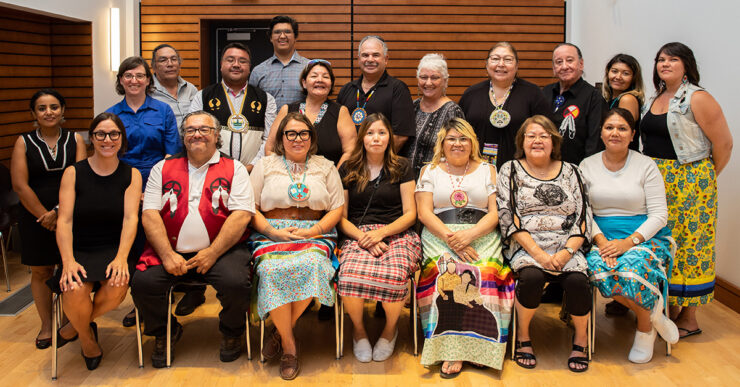The program will work to educate and promote decolonization at the University of Ottawa
The University of Ottawa welcomed a new program to the faculty of law, Civil Law section, on Aug. 17. The certificate in Indigenous law will combine legal education with a focus on Indigenous approaches.
While this is the first time that such a program will be offered exclusively in French in Canada, the use of Indigenous languages will likely be used in various courses within the program.
The Fulcrum reached out to Sophie Theriault, Vice-Dean of the faculty of law, to get a better idea of what this program entails and what it brings to the University of Ottawa community.
“Following the Truth and Reconciliation Commission’s Calls to Action, the certificate in Indigenous law aims to honour and revitalize Indigenous legal orders, as well as to provide a more respectful welcome to Indigenous learners in the faculty of law,” said Theriault.
The program will work to educate and promote decolonization at the University of Ottawa. But how will it do this?
Theriault explained in an email, “the use of Indigenous pedagogies and methodologies throughout the program contributes to decolonize legal education and to foster Indigenous learners’ confidence and academic success … Therefore, the certificate in Indigenous law promotes access to legal education and justice for Indigenous peoples.”
The program already has its first cohort, who were all present for the official launch of the program back in August.
Students of this program will be offered a variety of courses on legal matters involving family, land, constitutional, criminal, and international law. Additionally, students will be offered two elective courses in the faculty of arts, and a research course which will help students with their legal writing. All these courses will be enhanced with Indigenous approaches.
“The certificate builds on Indigenous approaches, adopting experiential and holistic teaching methods and connecting interdisciplinarity and learning by doing. For example, law is learned through observation, oral traditions, field courses as well as textual analysis. The presence of elders is highly valued to encourage the oral transfer of legal knowledge,” explained Theriault.
The new program will open doors to many opportunities for its students, and not just in the legal field. Graduates of this program will gain the “knowledge and competencies that are relevant to a vast array of professions within Indigenous communities or organizations, NGOs, governmental structures, international organizations, as well as in the education sector,” said Theriault.
While there are no plans at the moment for this program to be offered in English, Theriault explained that this program helps to bring the study of law to Indigenous communities whose colonial language is French.
If you are interested in the certificate in Indigenous law program, you can learn more about it on the faculty of law – Common Law webpage.






